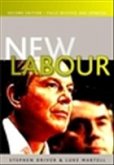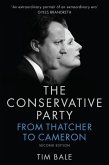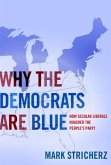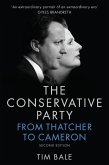Liberalism is an innovative introductory textbook exploring the dominant discourse of contemporary political theory and the core ideas that underpin it. Despite the ubiquity of liberalism there remains considerable disagreement about what contemporary political liberals believe. This book distinguishes modern political liberalism from earlier manifestations of the concept, yet shows how contemporary liberalism is derived from a long-standing historical tradition that includes John Locke, Immanuel Kant and J.S. Mill. Contemporary liberalism combines ideas from this historical tradition to make a political theory that places at its heart the equal treatment of each person. Paul Kelly provides an overview of the basic building blocks of contemporary liberalism - contractarianism, impartiality, justice and freedom, - and introduces students to the ideas of its key theorists John Rawls, Brian Barry and Ronald Dworkin. He goes on to consider three major challenges facing liberalism today and concludes with a defence of the continuing relevance of political liberalism in the contemporary world.
'Anyone wanting a lucid and accessible example of state-of-the-artpolitical philosophy need look no further. In brief compass, PaulKelly sets out an idea of liberal equality for our times, explainsits rationale and defends it against a wide variety of challenges.I don't know how he managed to accomplish all this in a short book- I know it would have been beyond me.'
--Professor Brian Barry, Lieber Professor of Political Philosophy,Columbia University
'This is a first-rate introduction to the philosophy andpolitics of contemporary liberal thought. Kelly offers more than acareful and concise statement of liberal egalitarianism. He alsotraces its historical roots, explains its many attractions, andrebuts fashionable but misplaced objections to it."
--Dr Matthew Clayton, Department of Politics & InternationalStudies,
University of Warwick
'This accessible little book in Polity's "Key Concepts" seriesis a broad introduction to recent work in political theory. Assuch, it provides useful background for other writing onliberalism. But it is no dry textbook; it has a distinct point ofview. Kelly, who is a professor of political theory at the LondonSchool of Economics and Political Science, defends a particulartype of liberalism: egalitarian liberalism, which he believes hastwo core principles. Philosophically, it is committed to "the basicsubstantive value of equal personhood"; politically, it attempts tosecure the "rights and economic resources necessary to protectequal personhood."
'Kelly's liberal heroes are a broadly Americanized bunch -- (theearly) John Rawls, Ronald Dworkin, and Brian Barry -- and hedefends his heroes from attacks on both the left and the right. Tothose on the right who argue that the egalitarian liberal'semphasis on equality unduly restricts our freedom to accumulatewealth, Kelly replies that property is not a pre-political rightthat overrides the concerns of social justice. To those on the leftwho claim that liberal egalitarianism is merely culturalimperialism in disguise, Kelly distinguishes between respecting aculture's practices -- which clearly makes sense -- and saying thatwe can never criticize such practices in light of generalprinciples -- which is self-defeating. Liberal principles avoidlapsing into moral subjectivism, Kelly says. It's time for liberalsto stand up and articulate them.'
-- Michael P. Lynch, in The Chronicle of Higher Education,April 22, 2005, page 22. Lynch is associate professor of philosophyat the University of Connecticut.
'[C]risp and elegant defence of liberalism'
--Times Higher Education Supplement
'Liberalism offers an erudite and stimulating defence ofliberalism as both a philosophical and a political project, and isa valuable addition to the existing scholarship.'
--The Philosophical Quarterly
--Professor Brian Barry, Lieber Professor of Political Philosophy,Columbia University
'This is a first-rate introduction to the philosophy andpolitics of contemporary liberal thought. Kelly offers more than acareful and concise statement of liberal egalitarianism. He alsotraces its historical roots, explains its many attractions, andrebuts fashionable but misplaced objections to it."
--Dr Matthew Clayton, Department of Politics & InternationalStudies,
University of Warwick
'This accessible little book in Polity's "Key Concepts" seriesis a broad introduction to recent work in political theory. Assuch, it provides useful background for other writing onliberalism. But it is no dry textbook; it has a distinct point ofview. Kelly, who is a professor of political theory at the LondonSchool of Economics and Political Science, defends a particulartype of liberalism: egalitarian liberalism, which he believes hastwo core principles. Philosophically, it is committed to "the basicsubstantive value of equal personhood"; politically, it attempts tosecure the "rights and economic resources necessary to protectequal personhood."
'Kelly's liberal heroes are a broadly Americanized bunch -- (theearly) John Rawls, Ronald Dworkin, and Brian Barry -- and hedefends his heroes from attacks on both the left and the right. Tothose on the right who argue that the egalitarian liberal'semphasis on equality unduly restricts our freedom to accumulatewealth, Kelly replies that property is not a pre-political rightthat overrides the concerns of social justice. To those on the leftwho claim that liberal egalitarianism is merely culturalimperialism in disguise, Kelly distinguishes between respecting aculture's practices -- which clearly makes sense -- and saying thatwe can never criticize such practices in light of generalprinciples -- which is self-defeating. Liberal principles avoidlapsing into moral subjectivism, Kelly says. It's time for liberalsto stand up and articulate them.'
-- Michael P. Lynch, in The Chronicle of Higher Education,April 22, 2005, page 22. Lynch is associate professor of philosophyat the University of Connecticut.
'[C]risp and elegant defence of liberalism'
--Times Higher Education Supplement
'Liberalism offers an erudite and stimulating defence ofliberalism as both a philosophical and a political project, and isa valuable addition to the existing scholarship.'
--The Philosophical Quarterly








